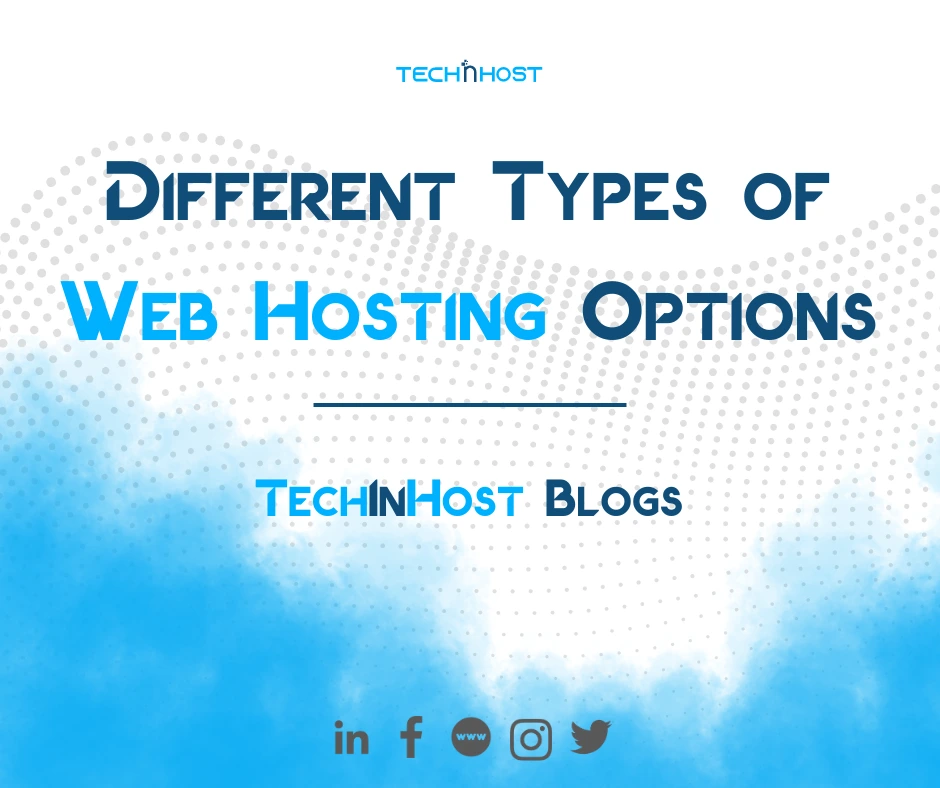Web hosting is the foundation for creating an online presence in the huge digital world of the internet. Whether you're launching a personal blog, a business website, or an e-commerce platform, choosing the right type of web hosting is important for achieving your goals efficiently. Understanding the diverse range of hosting options available can empower you to make informed decisions that align with your specific needs. In this guide, we’ll talk about the various types of web hosting, shedding light on their features, advantages, and ideal use cases.
1. Shared Hosting
Shared hosting is akin to renting a room in a large apartment complex. In this setup, multiple websites share the same server and its resources, including CPU, RAM, and disk space. It's an economical option suited for beginners and small websites with moderate traffic. However, since resources are distributed among multiple users, performance can be affected during peak times. Shared hosting typically offers a user-friendly control panel for managing website functionalities.
2. Virtual Private Server (VPS)
VPS hosting bridges the gap between shared hosting and dedicated hosting, offering a middle ground in terms of performance and control. With VPS hosting, a physical server is divided into multiple virtual compartments, each functioning as an independent server environment. Users have more control over their virtual space, including the ability to install custom software and configure server settings. VPS hosting provides better scalability and performance compared to shared hosting, making it suitable for growing websites and businesses with moderate traffic.
3. Dedicated Server Hosting
Dedicated server hosting offers the highest level of performance, reliability, and control by providing users with exclusive access to an entire physical server. Unlike shared hosting and VPS hosting, where resources are shared among multiple users, dedicated server hosting ensures that all resources are dedicated to a single user or website. This results in optimal performance, enhanced security, and the flexibility to customize server configurations according to specific requirements. Dedicated hosting is ideal for high-traffic websites, resource-intensive applications, and businesses that demand uncompromising performance and security.
4. Cloud Hosting
Cloud hosting leverages the power of cloud computing to deliver scalable and reliable hosting solutions. Unlike traditional hosting methods that rely on a single physical server, cloud hosting utilizes a network of interconnected virtual servers distributed across multiple data centers. This distributed architecture ensures high availability and resilience, as resources can be dynamically allocated based on demand. Cloud hosting offers scalability, flexibility, and pay-as-you-go pricing models, making it ideal for websites and applications experiencing fluctuating traffic patterns or unpredictable growth.
5. WordPress Hosting
WordPress hosting is specifically optimized to meet the unique requirements of WordPress-powered websites. These hosting plans often come pre-configured with WordPress software, essential plugins, and performance optimizations tailored for WordPress environments. WordPress hosting providers typically offer features such as automatic updates, enhanced security measures, and specialized support for troubleshooting WordPress-related issues. Whether you're running a personal blog or a business website on WordPress, WordPress hosting can streamline management tasks and improve overall performance.
6. Reseller Hosting
Reseller hosting allows individuals or businesses to purchase hosting resources from a provider and resell them to their clients. Reseller hosting packages come with additional features such as white-label branding, custom control panels, and billing software, enabling resellers to create their own hosting business without the infrastructure overhead. Reseller hosting is popular among web designers, developers, and entrepreneurs looking to offer hosting services as part of their portfolio or business offerings.
Conclusion
Choosing the right type of web hosting is a pivotal decision that can profoundly impact the performance, reliability, and scalability of your online ventures. Whether you're launching a personal blog, a small business website, or a large-scale e-commerce platform, understanding the diverse spectrum of hosting options is essential for making informed choices. From shared hosting for beginners to dedicated server hosting for enterprise-level applications, each hosting type offers unique features and benefits tailored to specific requirements. By evaluating your needs, budget, and long-term goals, you can select the most suitable hosting solution to support your online endeavours effectively.


 Google Workspace
Google Workspace
